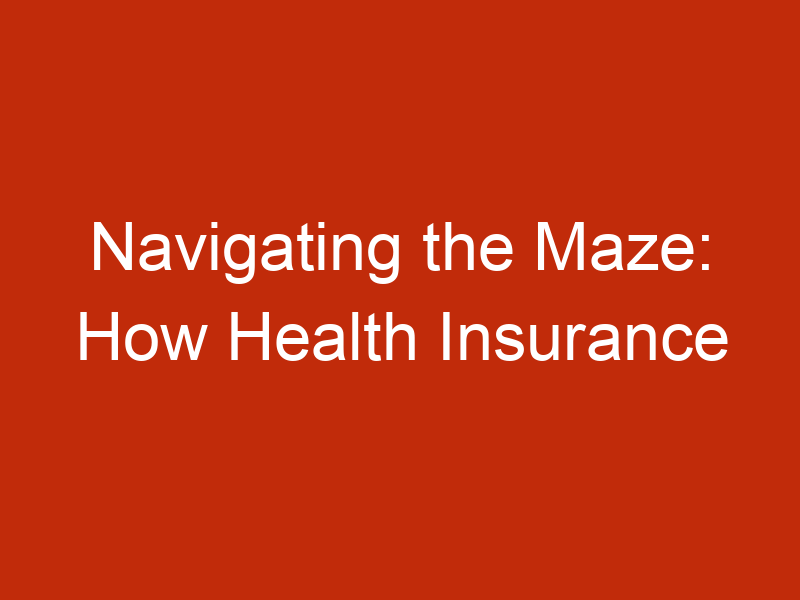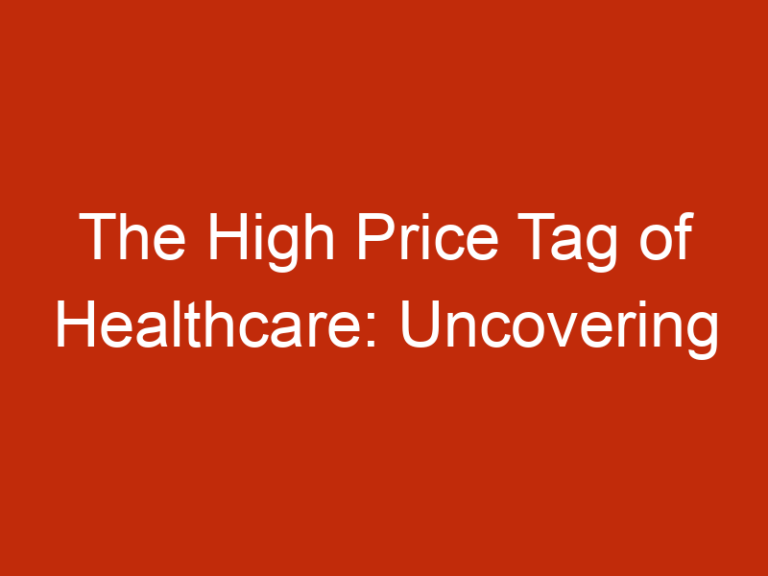Navigating the Maze: How Health Insurance Premiums Impact Your Wallet
Health insurance premiums can often feel like a labyrinthine maze, with confusing terms, countless options, and complex calculations. It’s no wonder many people become overwhelmed when it comes to understanding how health insurance premiums impact their wallets. However, with a little knowledge and some careful navigation, you can gain a better understanding of this maze and make informed decisions about your health insurance coverage.
To begin, let’s clarify what health insurance premiums are. Premiums are the amount you pay either monthly or annually to maintain your health insurance coverage. In other words, it is the cost of your insurance plan. This expense is separate from any out-of-pocket costs you may incur when seeking medical treatment.
One important aspect to consider is the relationship between premiums and deductibles. A deductible is the amount you must pay out-of-pocket before your health insurance coverage kicks in. Typically, the higher your deductible, the lower your premium. This means that opting for a high deductible health plan can reduce your monthly expenses, but you’ll have to shoulder more out-of-pocket costs before receiving coverage.
Another factor to keep in mind is the cost-sharing structure of your health insurance plan. This includes co-pays, co-insurance, and out-of-pocket maximums. Co-pays are fixed amounts you pay for certain services, such as doctors’ appointments or prescription medications. Co-insurance, on the other hand, is the percentage of costs you’re responsible for after meeting your deductible. Out-of-pocket maximums represent the limit of your financial responsibility for covered healthcare expenses within a given year. Understanding these terms is crucial in determining the potential financial impact of your health insurance plan.
When selecting a health insurance plan, it’s essential to calculate your total potential expenses, including premiums and expected out-of-pocket costs. This will help you compare different plans and evaluate which one aligns best with your healthcare needs and budget. Balancing lower premiums with higher deductibles or vice versa requires careful consideration of your current health status, medical history, and financial capabilities. For individuals who rarely require medical care, a high-deductible plan with lower premiums might be more cost-effective. On the other hand, those with chronic conditions or regular medical needs may benefit from a plan with higher premiums but lower deductibles.
It’s also worth exploring additional factors that can influence your health insurance premiums. Age, location, tobacco use, and family size can all impact the cost of your coverage. Typically, older individuals or those living in areas with higher healthcare costs will face higher premiums. Tobacco users may also be subject to increased costs due to the associated health risks. Understanding these factors will help you anticipate the potential impact on your wallet.
Lastly, it’s crucial to stay updated on changes in health insurance laws and regulations. The Affordable Care Act (ACA), for example, provides subsidies to some individuals and families based on their income and household size. These subsidies can significantly reduce premiums, making coverage more affordable. Similarly, changes in healthcare policies or market dynamics can impact premiums, so regularly reviewing your options is key to finding the most cost-effective plan.
In conclusion, navigating the maze of health insurance premiums can be challenging, but understanding the various factors at play can empower you to make informed decisions about your coverage. By considering deductibles, cost-sharing structures, personal circumstances, and changes in regulations, you can evaluate different plans and identify the best fit for your health and financial needs. Ultimately, taking the time to understand how health insurance premiums impact your wallet can save you money and provide you with peace of mind regarding your healthcare coverage.







